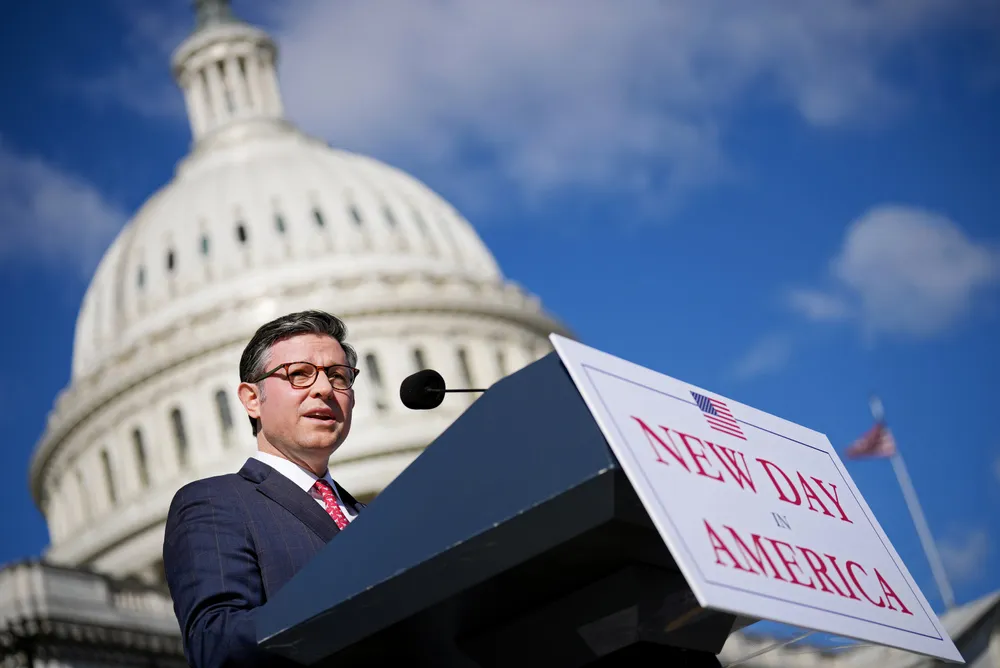Will US renewables face 'sledgehammer or scalpel' after Republican clean sweep?
Donald Trump's party adds House of Representatives to Senate and White House, but IRA will still have powerful allies

Republicans have secured control of Congress more than a week after national elections, giving President-elect Donald Trump a political runway to potentially repeal parts of the Inflation Reduction Act (IRA) – but also potentially to advance legislation sought by clean energy investors.
Votes are still being counted in nine races. Democrats lead in five and Republicans in four. If those results hold, Republicans will have a narrow 222-213 majority when the new Congress convenes 3 January, the same number they had on election day.
The party had high hopes of building a solid majority to advance a conservative agenda in anticipation that Trump would win, and Republicans would regain control of the Senate, which they did. They now have 53-47 control there.
Instead, Trump, who won easily, must work with a caucus that House Speaker Mike Johnson, the party’s leader, struggled to unify during the prior year due to ideological divisions and personality clashes.
Complicating the math for Johnson is that Trump nominated three newly elected Republican lawmakers in the House for senior positions in his upcoming administration.
To replace them, the governors of Florida and New York will need to call special elections. While Republicans would almost certainly win, the exact timetable for them to be held is unclear.
On Wednesday, Trump endorsed Johnson, a Louisiana representative, to remain in his post, who later won unanimous support from Republicans. The full House will vote on his nomination as speaker when it convenes.
His office said Johnson will meet this weekend with Trump, who he is calling the “comeback king,” to discuss plans to advance Trump’s and the party’s legislative priorities for 2025.
During the election campaign, Trump was critical of IRA, the landmark federal climate law signed by outgoing President Joe Biden in 2022, initially vowing to terminate it on “day one” in office. He later adopted a softer tone, perhaps in realisation he could not do so with an executive order. Repealing it would require a new law.
Even with Republicans in control of the incoming Congress, there appears little appetite for full repeal should Trump pursue this avenue, while the various IRA tax credits have powerful constituencies within the party.
“A full repeal would create a worse-case scenario where we would have spent billions of taxpayer dollars and received next to nothing in return,” they wrote.
Some, perhaps most, of the tax credits have support from both clean and fossil energy producers, who have, or are planning, investments in technologies such as carbon capture, critical minerals, hydrogen, manufacturing, nuclear, offshore wind, and solar.
Should Trump insist on full IRA repeal, it would represent an early test of his ability to impose party discipline in both houses of Congress.
Republican control of the executive and legislative branches could also portend a positive development for clean energy investors.
Trump has pledged to streamline federal siting and permitting requirements for energy, infrastructure, and mining projects, which he views as cumbersome, sometimes duplicative if multiple agencies are involved, and expensive and time consuming for companies to comply with.
While aimed at facilitating oil and natural gas production, that reform would potentially benefit all energy projects.
Republicans would now have an opportunity to codify changes to the National Environmental Policy Act, a landmark 1970 statute which requires federal agencies to evaluate the environmental effects of their actions.
Such an approach could gain support from some Democratic lawmakers as both parties see permitting reform as necessary for national security given China’s hold on many minerals critical for defence applications, and the pressing need to upgrade the country's ageing electric grid.
(Copyright)